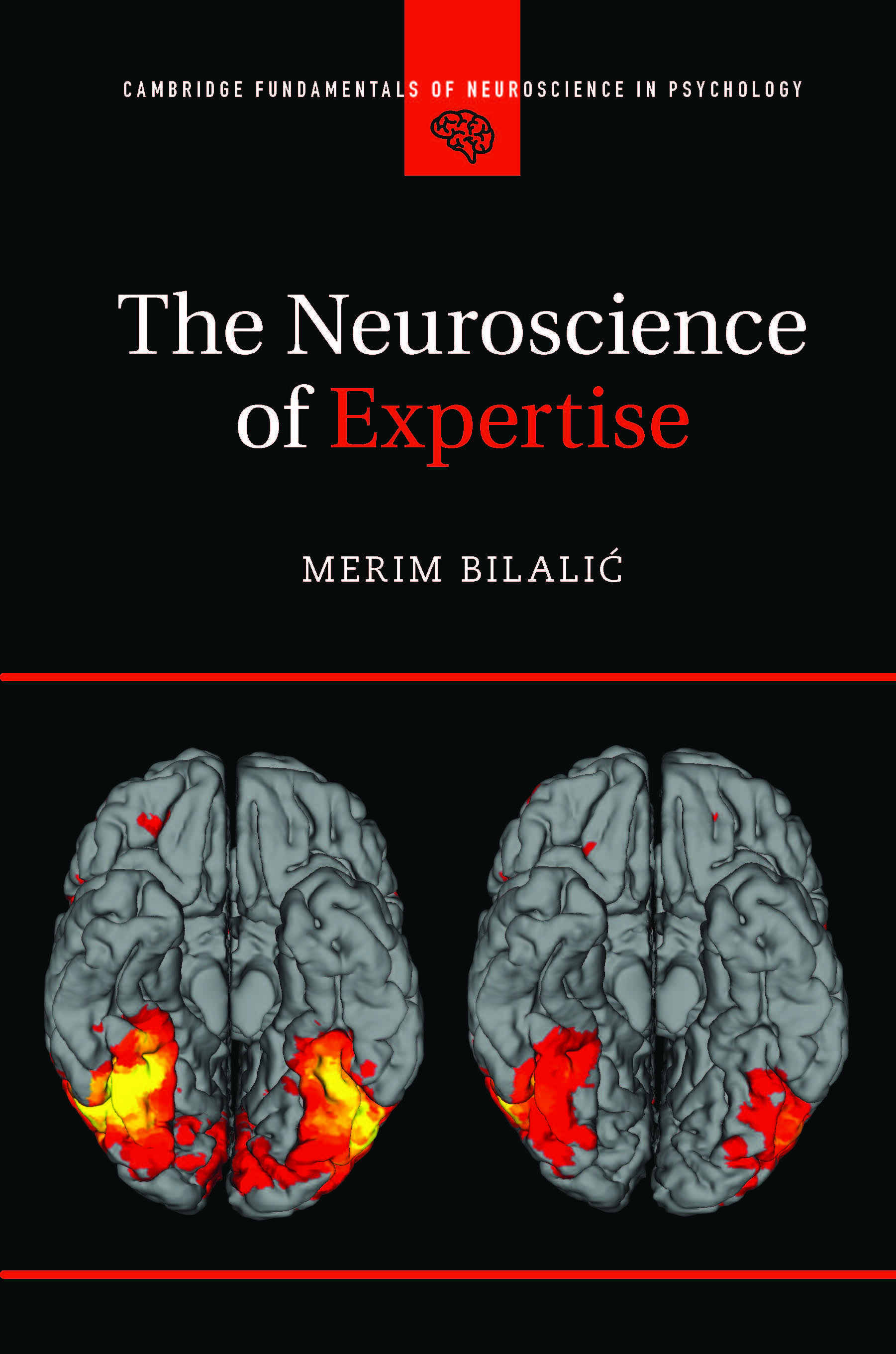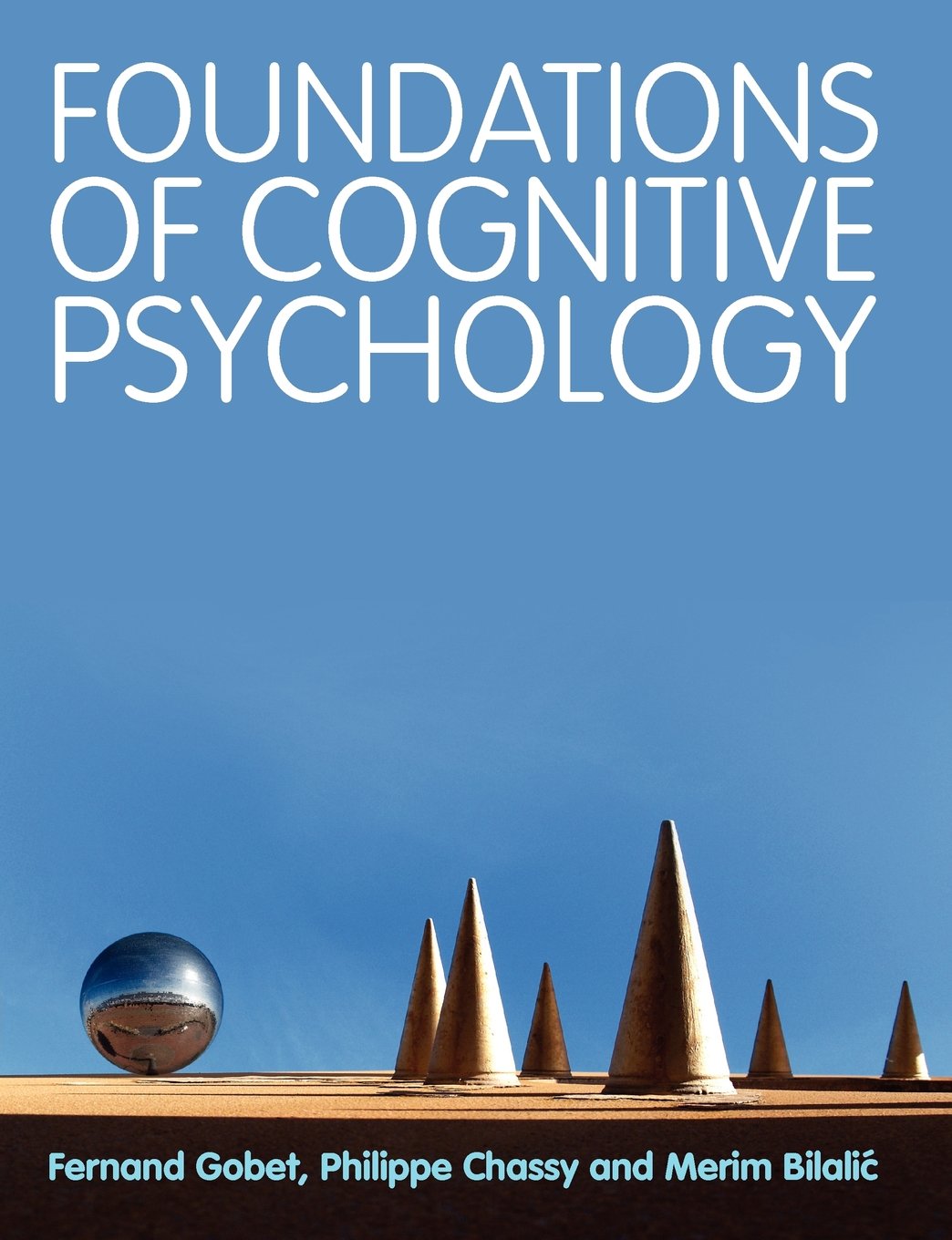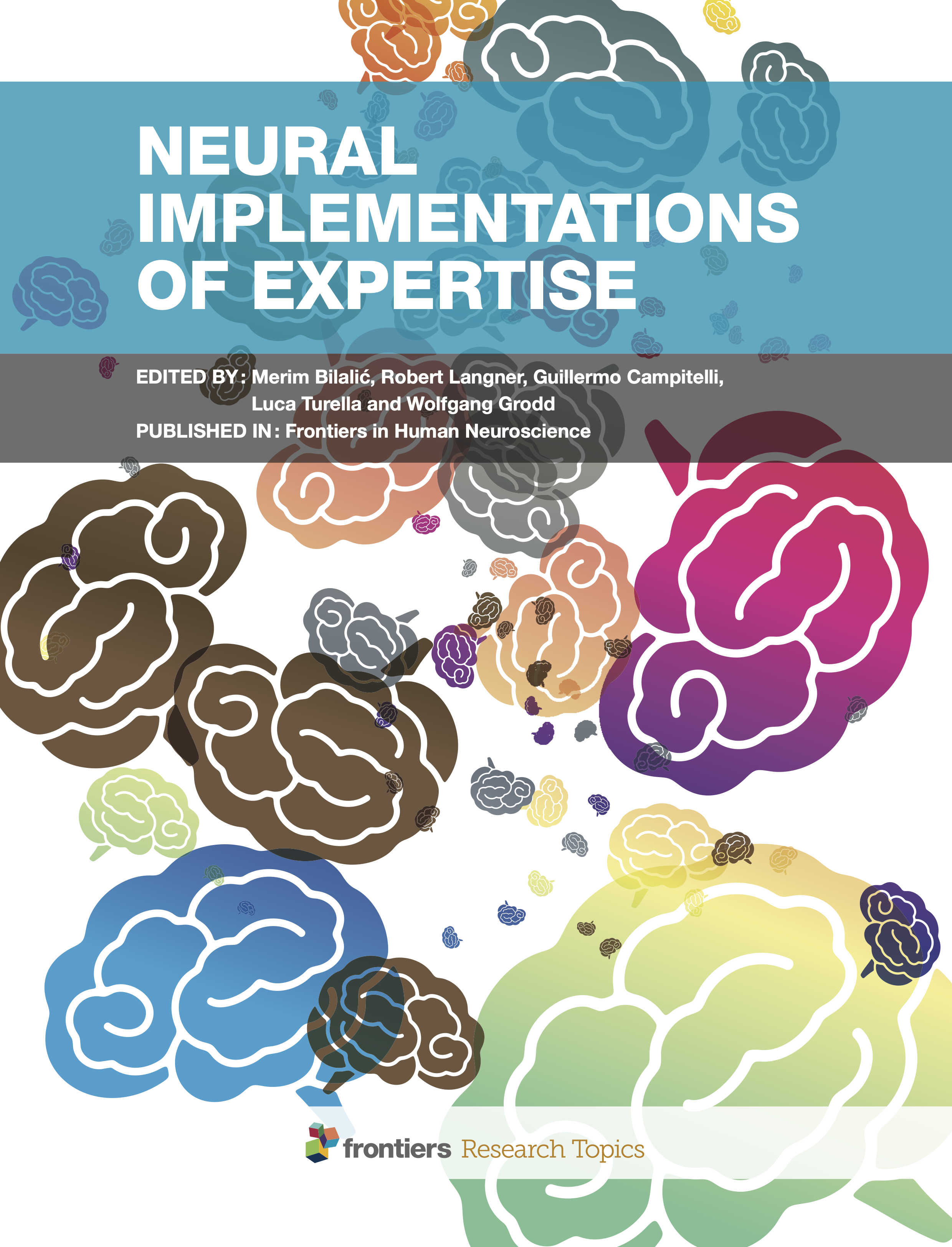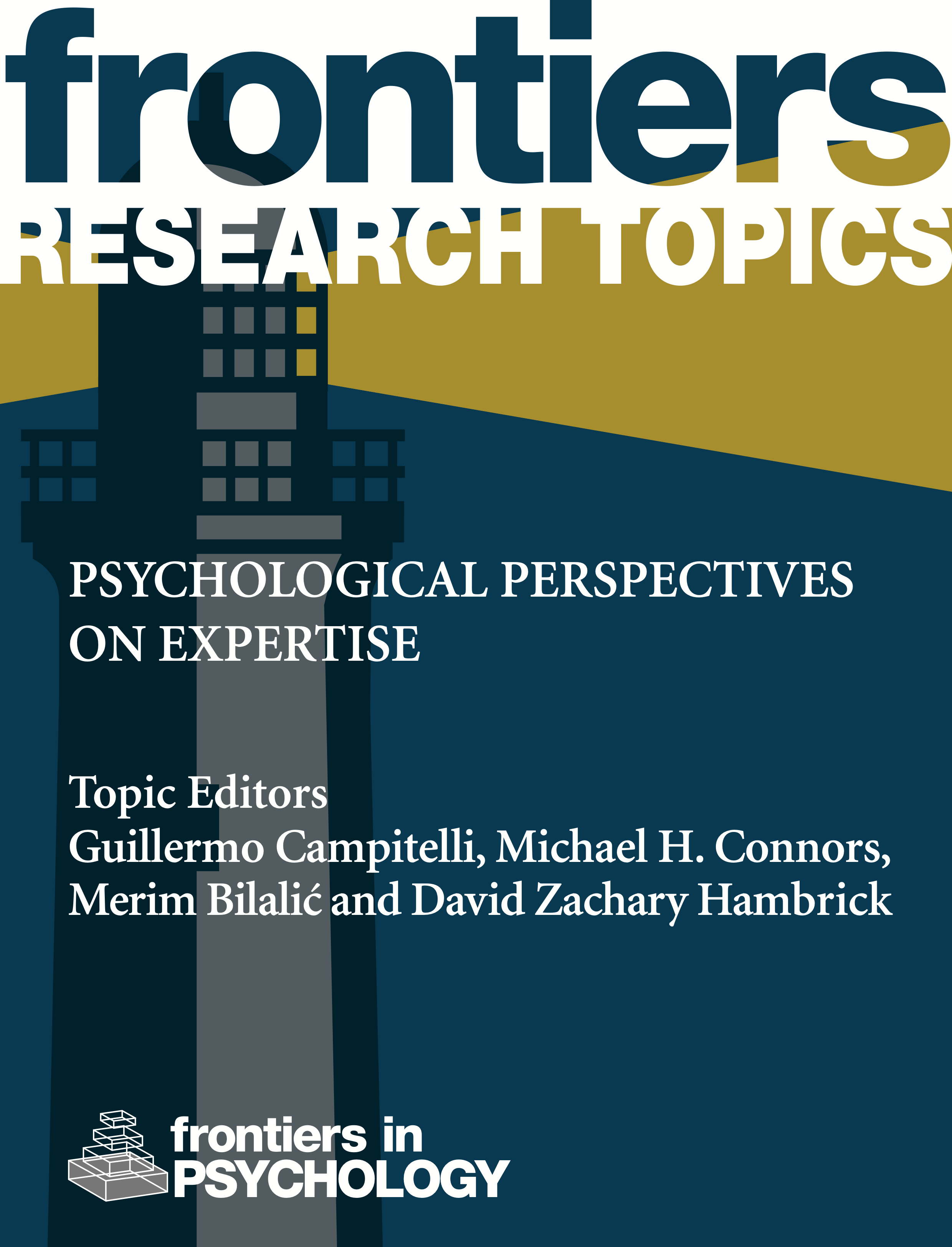Publications
Books
Edited Books
Articles
Preprints
Bilalić, M., Gula, B., & Vaci, N. (preprint). Revising Home Advantage in Sport – Home Advantage Mediation (HAM) Model.
Bilalić, M., Graf, M., & Vaci, N. (preprint). The Effect of COVID-19 on Home Advantage in High-stake Situations: The Case of EURO 20.
Bilalić, M. & Vaci, N. (preprint). Bayesian Framework for Moderated Mediation Using Covid-19-caused Natural Experiment: Modeling Home Advantage in Soccer.
Pollet, V. T., Bilalić, M., & Sheperd, L. (preprint). Stuck in the middle: Consequences of arbitrary binning the mid-point category in survey data: An illustration with student satisfaction in National Student Survey.
In Press
2023
[45] Larkin, P., Cocić, D., Hendry, D., Williams, M. A., O’Connor, D. & Bilalić, M. (in press). Gritting one’s way to success – Grit explains skill in elite youth soccer players beyond (deliberate) practice. Psychology of Sport & Exercise, 64, 102328.
2022
[44] Bilalić, M., Grottentahler, T., Nägele, T. & Lindig, T. (2022). Spotting Lesions in Thorax X-Rays at a Glance – Holistic Processing in Radiology. Cognitive Research: Principles and Implications, 7:99.
[43] Heron, J., & Bilalić, M. (2022). The Relationship Between Perfectionism, Anxiety, Putting Performance and the Yips in Golf: Replication of Chambers & Marshall (2017). International Journal of Golf Science, 10(1), 33644.
[42] Bilalić, M., Đokić, R., Koso-Drljević, M., Đapo, N., & Pollet, T. (2022). When (deliberate) practice is not enough–the role of intelligence, practice, and knowledge in academic performance. Current Psychology, 1-19.
2021
[41] Bilalić, M., Gula, B. & Vaci, N. (2021). Home Advantage Mediated (HAM) by Referee Bias and Team Performance During Covid. Scientific Reports, 11, 21558.
[40] McCarrick D., Bilalić, M., Wolfson, S. & Neave, N. (2021). Home Advantage during the Covid-19 pandemic: analyses of European football leagues. Psychology of Sport & Exercise, 56, 102013.
[39] Gula, B., Vaci. N., Alexandrowicz, W. R. & Bilalić, M. (2021). Never Too Much – The Benefit of Talent to Team Performance in the NBA: Comment on Swaab et al. (2014). Psychological Science, 32, 301-304.
[38] Bilalić, M., Graf, M., Vaci, N., & Danek, A. (2021). The Temporal Dynamics of Insight Problem Solving - Restructuring Might Not Always be Sudden. Thinking & Reasoning, 27, 1-37.
[37] Cocić, D.*, Vaci. N.*, Prieger, R. & Bilalić, M. (2021). Reading the future from body movements – Anticipation in handball. Journal of Motor Behavior, 53, 483-498.
2020
[36] Blech, C., Gaschler, R., & Bilalić, M. (2020). Why do people fail to see simple solutions – uncovering the mechanism behind the Einstellung (mental set) effect with the help of think-aloud protocols. Thinking & Reasoning, 26, 552–580.
[35] Conci, A.*, Bilalić, M., & Gaschler, R. (2020). Can you see what I hear? Detecting changes in multimodal setting. Experimental Psychology, 67,186-193.
2019
[34] Vaci, N., Edelsbrunner, P., Stern, E., Neubauer, A., *Grabner, R., & *Bilalić, M., (2019). The Joint Influence of Intelligence and Practice on Skill Development Throughout the Lifespan. PNAS, 116, 18363-18369. (direct submission, shared senior authorship)
[33] Bilalić, M., Graf, M., Vaci, N., & Danek, A. (2019). When the Solution is on the Doorstep: Better Solving Performance, but Diminished Aha! Experience for Chess Experts on the Mutilated Checkerboard Problem. Cognitive Science, 43, e12771.
[32] Bilalić, M., Lindig, T. & Turella, L. (2019). Parsing Rooms – The Role of the PPA and RSC in Perceiving Object Relations and Spatial Layout. Brain Structure and Function, 224, 2505-2524.
[31] Vaci, N., Cocić, D., Gula, B., & Bilalić, M. (2019). Large data and Bayesian modelling – aging curves of NBA players. Behavior Research Methods, 51, 1544-1564.
[30] Langner, R., Eickhoff, S., & Bilalić, M. (2019). A network view on brain regions involved in experts’ object and pattern recognition: Implications for the neural mechanisms of skilled visual perception. Brain and Cognition, 131, 74-86.
2018
[29] Bilalić, M. (2018). Double Take of Expertise. Current Directions in Psychological Science, 27, 462-469.
[28] Bilalić, M. (2018). The Brain of Experts. The Psychologist, 31, 24-29.
2017
[27] Vaci, N. & Bilalić, M. (2017). Chess databases as a research vehicle in psychology: Modeling large data. Behavioral Research Methods, 49, 1227-1240.
2016
[26] Bilalić, M. (2016). Revisiting the Role of the Fusiform Face Area (FFA) in Expertise. Journal of Cognitive Neuroscience, 28, 1345–1357.
[25] Bilalić, M., Grottenthaler, T., Nägele, T., & Lindig, T. (2016). The Faces in Radiological Images - Fusiform Face Area Supports Radiological Expertise. Cerebral Cortex, 26, 1004-1014.
2015
[24] Vaci, N., Gula, B. & Bilalić, M. (2015). Is Age Really Cruel to Experts – Compensatory Effects of Expertise and Practice. Psychology and Aging, 30, 740-754.
[23] Bilalić. M., Langner, R., Campitelli, G., Turella, L. & Grodd, W. (2015). Neural implementations of expertise. Frontiers in Human Neuroscience. 9, 545.
[22] Campitelli, G., Connors, M.H., Bilalić, M., & Hambrick, D.Z. (2015). Psychological perspectives on expertise. Frontiers in Psychology, 6, 258.
2014
[21] Bilalić, M., & McLeod, P. (2014). Why do good thoughts block better ones? Scientific American, 310(3), 74-79.
– re-published in Special Issue “Mysteries of the mind”, 2017, 26(3s).
– re-published in Special Issue “The science behind the debates”, 2017, 26(5s).
– French translation Pour la Science, 2015, 458, 37-42.
– part of e-Book “Truth vs. Lies”, 2022.
[20] Gaschler, R., Progscha, J., Smallbone, K., Ram, N., & Bilalić, M. (2014). Playing off the curve – Testing quantitative predictions of skill acquisition theories in development of chess performance. Frontiers in Psychology, 5, 923.
[19] Vaci, N., Gula, B. & Bilalić, M. (2014). Restricting range restricts conclusions. Frontiers in Cognition, 5, 569.
2013
[18] Rennig, J.,* Bilalić, M.,* Huberle, E., Karnath, HO., & Himmelbach, M. (2013). The temporo-parietal junction contributes to global Gestalt perception – evidence from studies in chess experts. Frontiers in Human Neuroscience, 7, 513. *shared first authorship
2012
[17] Bilalić, M., Turella, L., Campitelli, G., Erb, M., & Grodd, W. (2012). Expertise modulates the neural basis of context dependent recognition of objects and their relations. Human Brain Mapping, 33, 2728–2740.
2011
[16] Bilalić, M., Langner, R., Ulrich, R., & Grodd, W. (2011). Many faces of expertise – the role of fusiform face area in chess experts and novices. Journal of Neuroscience, 31, 10206-10214.
[15] Bilalić, M., Kiesel, A., Pohl, C., Erb, M., & Grodd, W. (2011). It takes two - skilled recognition of objects engages lateral areas in both hemispheres. PLoS ONE, 6: e16202.
2010
[14] Bilalić, M., Langner, R., Erb, M., & Grodd, W. (2010). Mechanisms and neural basis of object and pattern recognition – A study with chess experts. Journal of Experimental Psychology: General, 134, 728-742.
[13] Bilalić, M., McLeod, P., & Gobet, F. (2010). The mechanism of the Einstellung (set) effect: A pervasive source of cognitive bias. Current Directions in Psychological Science, 19, 71-75.
[12] Gaschler, R., Mata, J., Störmer, V., Kühnel, A., & Bilalić, M. (2010). Change detection for new food labels. Food Quality and Preference, 21, 140-147.
[11] Vollstädt-Klein, S., Grimm, O., Kirsch, P., Bilalić, M. (2010). Personality of elite male and female chess players and its relation to chess skill. Learning and Individual Differences, 20, 517-521.
2009
[10] Bilalić, M., McLeod, P., & Gobet, F. (2009). Specialization effect and its influence on memory and problem solving in expert chess players. Cognitive Science, 33, 1117-1143.
[9] Bilalić, M., Smallbone, K. M., McLeod, P., & Gobet, F. (2009). Why are (the best) women so good at chess? Participation rates and gender differences in intellectual domains. Proceedings of the Royal Society B, 276, 1161-1165.
[8] Bilalić, M., & Gobet, F. (2009). They do what they are told to do: the influence of instruction on (chess) expert perception. Cognitive Science, 33, 743-747.
2008
[7] Bilalić, M., McLeod, P., & Gobet, F. (2008). Why good thoughts block better ones: The mechanism of the pernicious Einstellung effect. Cognition, 108, 652-661.
- BPS Outstanding Doctoral Research Award
[6] Bilalić, M., McLeod, P., & Gobet, F. (2008). Inflexibility of experts - reality or myth? Cognitive Psychology, 56, 73-102.
- BPS Outstanding Doctoral Research Award
[5] Bilalić, M., McLeod, P., & Gobet, F. (2008). Expert and ‘Novice’ Problem Solving Strategies in Chess - Sixty Years of Citing de Groot (1946). Thinking & Reasoning, 14, 395-408.
2007
[4] Bilalić, M. & McLeod, P. (2007). Participation rates and the difference in performance of women and men in chess. Journal of Biosocial Science, 39, 789-793.
[3] Bilalić, M., McLeod, P., & Gobet, F. (2007). Does chess need intelligence – a study with young chess players. Intelligence, 35, 457-470.
[2] Bilalić, M., McLeod, P., & Gobet, F. (2007). Personality profiles of young chess players. Personality and Individual Differences, 42, 901-910.
2006
[1] Bilalić, M. & McLeod, P. (2006). How intellectual is chess – a reply to Howard. Journal of Biosocial Science, 38, 419-421.
Book Chapters
[4] Bilalić, M., *Conci, A., *Graf, M. & *Vaci, N. (2017). Neural Underpinning of Expertise in Games. In D. Z. Hambrick, G. Campitelli, & B. N. Macnamara (Ed.), The Science of Expertise. (pp. 182-200). London: Routledge.
[3] Bilalić, M. & Campitelli, G. (2018). Neuroscience of expertise. In K. A. Ericsson (Ed.), The Cambridge Handbook of Expertise. (pp. 517-537). Cambridge: Cambridge University Press.
[2] Campitelli, G., Gobet, F., & Bilalić, M. (2014). Cognitive processes and development of chess genius: An integrative approach. In D. K. Simonton (Ed.), Handbook of Genius. New Jersey: Wiley-Blackwell.
[1] Bilalić, M. (2014). Allgemeine Psychologie. In R. Alexandrowicz, T. Gablonski, & J. Glück (Eds.), Psychologie kompakt – Grundlagen und Forschungsperspektiven. Wien: acultas.wuv/UTB.



